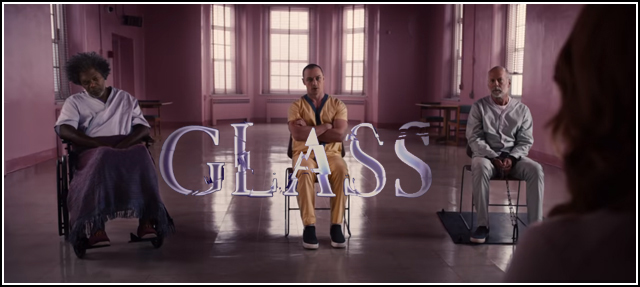
Hey, folks, Precious Roy here, with a review of M. Night Shyamalan’s GLASS. There will be spoilers here if anyone cares to see it and has not yet, so, be warned— it would be a sin to ruin Shyamalan twists for the hell of it. And, yes, I am most definitely recommending this film.
tl;dr: I liked it. It was not only a satisfying end to the story, but it was also a satisfying beginning if Shyamalan decides to carry the story further. It has three central patented Shyamalan twists, only one of which the audience seemed to see coming.
The day that the embargo on GLASS reviews was over, I remember being a bit bummed as folks began posting. Almost everything I heard was negative, sometimes nasty, and above all else, dismissive. I really didn’t want GLASS to suck because I had been waiting on it hopefully, but I trusted those reviews, as you do... so I only saw the film yesterday morning as a result, when I began to hear... well, a few dissenting opinions from two friends who'd seen it.
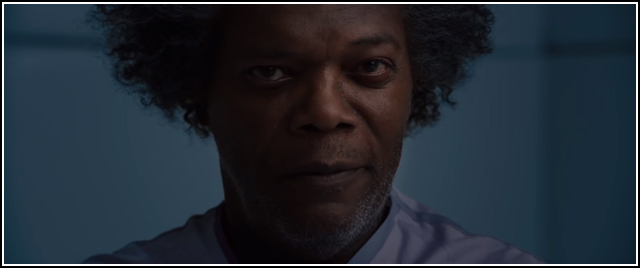
My history with Shyamalan movies is similar to most, outside of a few geeky details. The day MYSTERY MEN had come out, I made arrangements to meet a large group of my LARPing friends at a theater to see that film, because we had been talking about making the White Wolf game ABBERANT as a LARP we could enjoy. But the showing was sold out when I got there, so my date and I decided, meh, let's go see the ghost movie with Bruce Willis, knowing nothing about it but the 'I see dead people' trailer.
And, yes, I love THE SIXTH SENSE. I was hit by the Malcolm twist. I think THE SIXTH SENSE is one of the finest big-feature debuts from a director I’ve ever seen. And UNBREAKABLE was even better, for me, for the obvious reason that I love superhero tales and I felt like Shyamalan understood that we need to see the villain becoming the villain, but not see the origin play itself out painfully and obviously as a man's descent into here's why I'm such a bad dude. We thought Elijah was a hero, so we invested in his story, and that made the twist much more satisfying. Until the reveal, Elijah's progression in UNBREAKABLE is heroic.
I liked SIGNS, if it was a little on-the-nose with the ending. I even liked THE VILLAGE. It’s LADY IN THE WATER where I had my parting of the ways with Shyamalan; I was annoyed by a very precious and not terribly gracious subtext involving dreamers and critics. It wasn't that off of a message, but it was cloying and kind of rude-- sort of what I worry Snyder's THE FOUNTAINHEAD will turn out to be.
Seeing Mark Wahlberg in THE HAPPENING was a double-nope; one day I'll lose a bet and I guess that I'll have to watch that one. I wasn't at all motivated to see DEVIL or THE LAST AIRBENDER. I only recently gave SPLIT a chance after seeing THE VISIT and deciding Shyamalan might not be as bad as I had written him off as.
SPLIT’s ending might seem a bit weak if you happen to think the film was about Kevin Crumb, and that Casey escaping him was the ending you were there for. But that isn’t the point of the film. The ending is the moment Casey makes up her mind in the back of a squad car to face her greatest fear. The same way THE SIXTH SENSE didn’t end with Cole opening up to his mother, it ended when Malcolm's journey was complete. Please believe me when I tell you that you didn’t understand what Casey’s hero journey was if you thought it was to escape The Horde.
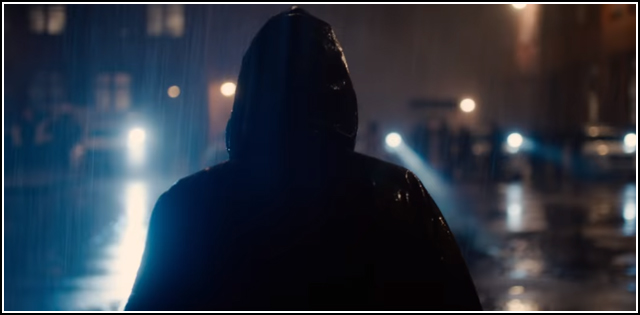
GLASS takes place not long after the events of SPLIT. As we enter the life of David Dunn (Bruce Willis) again, we discover his wife has passed on and it’s just him and his son, Joseph (once again played by the very talented Spencer Treat Clark), and they have been doing the superhero thing for some time (earning the nickname Overseer), as a team. David canvasses likely high-crime areas, letting his touch-visions guide him; Joseph watches over him, and by ear-mic, feeds him research, crime theory, and helpful data via the Internet. The two are working on finding Kevin Crumb, a.k.a. The Horde (James McAvoy), who has taken four teenage girls hostage for The Beast to feed upon.
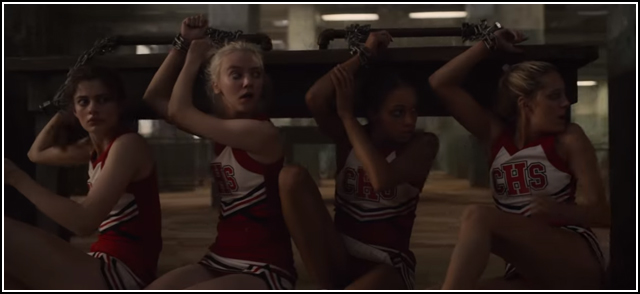
With a lucky encounter with Kevin as Hedwig (The Horde's nine-year-old persona) and some good intel from Joseph, David finds The Horde's lair, and the girls, and rescues them just as The Beast arrives. In the battle that follows, David and The Horde find themselves surrounded by a SWAT team. As David moves to escape, Dr. Ellie Stapler (Sarah Paulson) identifies him by name, and David surrenders. The two men are taken to a psychiatric hospital where Stapler identifies herself as a specialist who deals in delusions, specifically delusions that people are superheroes. Joseph, Casey (Anya Taylor-Joy) and Elijah Price's mother, Mrs. Price (Charlayne Woodard) each turn up to offer help to their respective Others (Elijah Price is in the same institution).
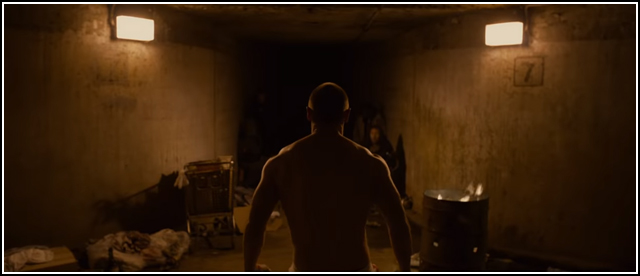
Over the next half hour of the film, Stapler works to convince these advocates and the Others themselves— Dunn, Crumb, and Price, Dunn’s creator and nemesis— that they are not superheroes, but normal people under a delusion. All three face belief-rattling suggestions that perhaps these miracles are just everyday abnormalities that can be treated with drugs or laser therapy.
If I had read first that GLASS deals in a similar subtext to LADY IN THE WATER of critical people damaging the magic of the world, honestly, I might have avoided GLASS altogether. LADY IN THE WATER's preciousness angered me so much, and yet here… I understood it. Stapler’s mission is to convince these three extraordinary beings that they are in fact everyday people with no special abilities, and this is not a plot built around a heavey-handed message, it's a message evenly and purposefully built into a plot. We see through the three supporters—Joseph, Casey, and Mrs. Price—that Stapler is very talented and convincing. Whilst David and The Horde begin to question themselves and their beliefs, the one with the power to out-think the narrative Stapler is selling— Mister Glass— begins to put a plan into action.
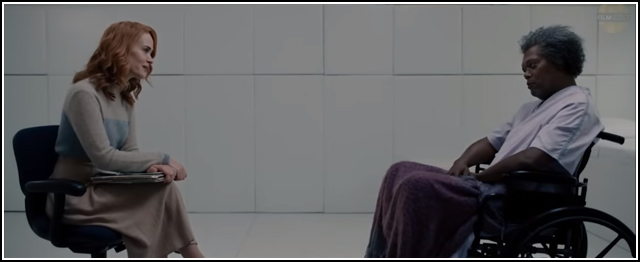
Is the ending a problem for fans? The ending may feel like a downer to some because they were expecting Dunn to be triumphant, to defeat the Horde and put Mister Glass back in prison, and, I dunno, form the AVENGERS or some silly shit. That just isn’t Shyamalan’s story, and that wouldn’t be a story worthy of having these great actors in, or Shyamalan to write and direct. That’s JAWS II or, potentially, GREASE 2. Shyamalan gave us something of value, here.
For my money, GLASS is a profound superhero film that talks about the control of narratives in society, about how people often see the extraordinary as the ordinary thing they expect life to be, or actively work to keep things normalized to where they want them to be. I believe that Shyamalan knew he wouldn’t get a fair break from some. He knew that the fix was kind of in, critically, about who would approve of his films, and who wouldn’t. So like Mister Glass, Shyamalan made his villain someone who was trying to convince the world it doesn’t have superheroes because the villain doesn’t want superheroes to dominate the world. The supporters, or rather, the BELIEVERS— Joseph, Casey and Mrs. Price— represent the audience that says, screw the review, I wanna see it, and gets their own value from it or pans it.
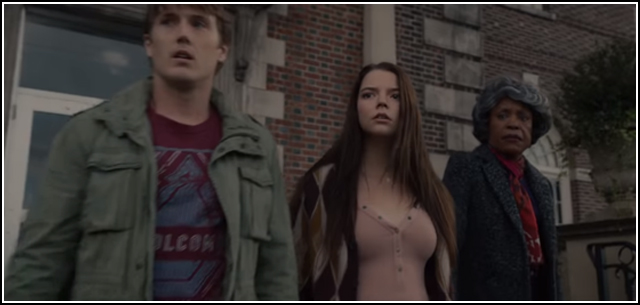
If anything, Shyamalan is reminding the audience that you really don’t need to be reading this very review I’m writing. Films can rise and fail, but they should do so not because of someone else’s narrative overshadowing an existing story; they should fail when there is no actual value to the story being told. As a critic, I should be telling you if I found personal value in the narrative Shyamalan is telling, not telling you in a narrative that M. Night Shyamalan is not a superhero.
But instead, I’ll tell you that M. Night Shyamalan is a superhero, and he’s made a goddamned good superhero film; certainly a better one than WATCHMEN… and that’s a very high bar. It has value... and you should go see it. The point M. Night Shyamalan is making with GLASS is not 'Critics suck and should shut up'. More than anything else, I got the idea that Shyamalan wanted to talk to the fact that some folks just have a narrative to dismiss anything they don't want. And then, the critics proved him fuckin' right.
The top three reviews of GLASS from Google… two of them are just fucking atrocious.
Let me hit you with a quote from Empire Magazine's review:
How would the writer-director satisfyingly smash together two disparate tales, one a gonzo horror featuring a berzerker woman-abductor, the other a slow-burn drama featuring an invincible man and his very fragile adversary?
The amount of alliteration in that sentence should be your first warning bell that the author is in love with his own writing more than he is trying to convey an impartial concept of what the audience will experience with this film. (Feel free to go back and check my own work, especially that last sentence, and you'll find it in places where I'm prancing fancy for the masses with alliteration, instead of trying to connect to their needs: an on-target review. It's a Dead Kitten kind of thing in the world of film review, I guess, and it lets you, the reader, down terribly.)
The second should be that neither UNBREAKABLE nor SPLIT is about what De Semlyn seems to think they're about. UNBREAKABLE is about a man discovering he is a comic book hero, from a mysterious friend, and accepting that he is the hero that his son believes he is. The conflict with Mister Glass doesn't come until the last sixty seconds of UNBREAKABLE; he’s been the ally throughout the film until that moment. Similarly, SPLIT is about a young woman, the victim of sexual abuse, who becomes abducted by a split-personality serial killer and uses the survivor instincts she has honed to escape her fate, only to figure out that she doesn't need to run anymore.
Every one of these three films has been as much about the three characters that survive, support, or believe in the superhero/supervillain in their lives, as much as superhero/supervillain themselves. UNBREAKABLE’s big moment was Joseph’s unwavering belief in David, whom others gave up on a long time before, being repaid with the pushing of a newspaper article across a breakfast table and a silent conspiracy of love between father and son. SPLIT’s big moment was Casey in the back of that police cruiser figuring out she doesn’t need to go back home with her uncle and that she is a survivor. With GLASS, it’s Stapler seeing, Kaiser Soze style, how Mister Glass got the best of her and accomplished his goal in an act of self-sacrifice, her narrative destroyed by the three people she and her organization overlooked in the whole matter: the ones who BELIEVED.
So maybe that's the first problem with the reviews: the critics don't seem to get what the basic narrative is. (Or, alternatively, they're just fucking lazy about reviewing a film they didn't like.) Either way, they're letting the readers down horribly.
Here's something from Vulture that pisses me off endlessly:
In his 2004 supernatural melodrama The Lady in the Water, M. Night Shyamalan cast himself as an author who receives a message from a “madam narf” (i.e., an elite mermaid-ish entity from the “Blue World”) to the effect that he shouldn’t give up writing in spite of low wages and nasty critics, because the story he’s penning at that very moment will inspire a child who will grow up and transform the world. I’m pretty sure Shyamalan regards his decades-in-the-making thriller, Glass, as the same sort of world-transformative work — an exhortation to incipient superheroes who walk among us to believe in their own powers. I only wish Shyamalan’s storytelling was as lively as his pathology. His mixture of pulp and idolatry congeals on the screen.
I don’t think Shyamalan meant to say that sexual assault is super-empowering, but his view of defense mechanisms and their hierarchy is not dissimilar from the one trumpeted by Mr. Glass, who engineered traumas to help superior individuals locate their individual superiorities.
AS LIVELY AS HIS PATHOLOGY. D'ya think David Edelstein is qualified to psychologically diagnose a writer/director's preoccupation with how critical review in the Internet age has damaged the art of film? Dunno, but I think he thinks he is, and the hubris of that is just... sucky.
As to the second sentence.... this reviewer doesn't have a clue what SPLIT was about. Casey is clever, having learned to be in order to survive years of abuse at her uncle's hands. When the two girls she's taken with are making desperate moves, she's playing a chess match to survive. That isn't a superpower, but that is learning to protect yourself. This reviewer sees a plot device heroine. I see a heroine who uses what she's learned to survive. Because although The Beast's religious ranting is complete bullshit, Casey did her best with what she had all the while; abuse is not a superpower in Shyamalan's eyes, it's one in the BEAST's eyes. Again, he's badly head-shrinking Shyamalan instead of examining the film fairly.
About the only review I could stomach in this set was Wired's, which attempts to understand the story, even if it isn't as keen on it as I am.
Did this movie need multiple scenes where someone goes to a comics shop and Finally Gets It? Or was having Mr. Glass screaming, "It's not a showdown, it's an origin story!" necessary? Probably not.)
To answer Angela Watercutter: yes, yes, I believe it did need to go to the comic shop over and over again for epiphanies.
Mister Glass' mother didn't need to go, because she listens to her son and understands the iconography and the meaning of the hero narrative. Casey goes to understand Kevin and Stapler better. Joseph goes because he's lost as to how to free his dad and he's trying to go to where Mister Glass would go. Dr. Staple goes because she is doing her research on her target, and trying to save lives. Not all of them had to learn through the medium what is happening with the people they love, but I'm glad they all did. Shyamalan likes to provide clues to his twists, and putting the clues to the three twists in GLASS in the comic book store was brilliant, in my most humble opinion.
Also... does Mister Glass actually scream that? I thought he said it, dying, to his mother? If he did scream it, okay, Ms. Watercutter, fair enough, that was excessive. Also: there was a famous sketch about Samuel L. Jackson yelling once before... since I hate people laughing in the wrong way, I will not repost it.
Anyways, that's my courageous story. If you liked SPLIT, and understood it as more than a slasher-cannibal film, by all means, go see this film and judge it for yourself.
-- Precious Roy

